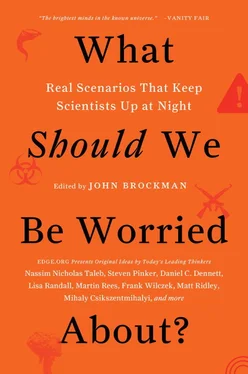The problem is the economic model itself. As former Fed chairman Paul Volcker observed on December 11, 2009: “We have another economic problem which is mixed up in this of too much consumption, too much spending relative to our capacity to invest and to export. It’s involved with the financial crisis, but in a way it’s more difficult than the financial crisis, because it reflects the basic structure of the economy . ” The simultaneous end of financially engineered growth, environmental issues, and the scarcity of essential resources now threatens the end of an unprecedented period of growth and expansion.
Policy makers may not have the necessary tools to address deep-rooted problems in current models. Revitalized Keynesian economics may not be able to arrest long-term declines in growth, as governments find themselves unable to finance themselves to maintain demand. It is not clear how, if at all, printing money or financial games can create real ongoing growth and wealth.
Low or no growth is not necessarily a problem. It may have positive effects—for example, on the environment or conservation of scarce resources. But current economic, political, and social systems are predicated on endless economic expansion and related improvements in living standards. Growth is needed to generate higher tax revenues, helping balance increased demand for public services and the funds needed to finance these. Growth is needed to maintain social cohesion. The prospect of improvements in living standards, however remote, limits pressure for wealth redistribution. As Henry Wallich, a former governor of the U.S. Federal Reserve, accurately diagnosed: “So long as there is growth there is hope, and that makes large income differentials tolerable.”
The social and political compact within democratic societies requires economic growth and improvements in living standards. Economic stagnation increases the chance of social and political conflict. Writing in The War of the World: Twentieth-Century Conflict and the Descent of the West, Niall Ferguson identified the risk:
Economic volatility matters because it tends to exacerbate social conflict…. [P]eriods of economic crisis create incentives for politically dominant groups to pass the burdens of adjustment onto others…. Social dislocation may also follow periods of rapid growth, since the benefits of growth are very seldom evenly distributed…. [I]t may be precisely the minority of winners in an upswing who are targeted for retribution in a subsequent downswing .
Politicians, policy makers and ordinary people do not want to confront the possibility of significantly lower economic growth. Like Fitzgerald’s tragic hero Gatsby, the incredulous battle cry is, “Can’t repeat the past? Why of course you can!” But as philosopher Michel de Montaigne noted, “How many things we regarded yesterday as articles of faith that seem to us only fables today . ” A recent book, Alan Weisman’s The World Without Us, was based on a thought experiment: What would a world bereft of humans revert to? We should be worried about what a world without growth—or, at best, low and uneven rates of growth—will look like.
HUMAN POPULATION, PROSPERITY GROWTH: ONE I FEAR, ONE I DON’T
LAURENCE C. SMITH
Professor and vice-chair of geography, professor of earth & space sciences, UCLA; author, The World in 2050
If population growth is a measure of a species’ success, then the 20th century was astonishingly successful for Homo sapiens . In just one long human lifetime, we grew our living population from 1.6 to 6.1 billion, a net addition of 4.5 billion people. Now in the 21st, we exceed 7 billion and demographic computer models, fed with national birth and death statistics from countries around the globe, reflect our slowing but still climbing growth, advancing toward 9 to 10 billion by 2050 despite falling total fertility rates in much of the world.
This worries biologists and ecologists like Stanford’s Paul Ehrlich (author of the 1968 bestseller The Population Bomb ) who have often seen exponential population growth at first succeed, then fail spectacularly. In natural ecosystems, exponential growth (often called a J-curve, owing to its sharp upward curve) is the hallmark of a boom-and-crash species. Snowshoe hares ( Lepus americanus ), for example, procreate inexhaustibly until a food shortage or disease triggers a crash, decimating not just the hares but also the more abstinent lynxes ( Lynx canadensis ) that eat them. Nature is rife with grim examples of population booms and crashes, which is why Ehrlich and others grew fearful by the 1970s, as our exponential growth charged on with no signs of stabilization in sight. This inspired some extreme birth-control measures in the developing world, such as China’s one-child policy and targeted sterilization programs in India. Today “population growth” is still at the top of many people’s lists of the most pressing challenges facing the world. The thought of 10 billion people sharing the planet by mid-century (some 40 percent more than today) is for them truly dreadful.
Such fear is misplaced. Not because 10 billion isn’t a large number; indeed, it is huge. Total populations of other large-bodied, top-level predators (bears, for example) usually number in the tens to hundreds of thousands, not in the billions. The ubiquitous mallard duck, one of the world’s commonest birds, has a global population of perhaps 30 million. The quantities of water, food, fiber, arable land, metals, hydrocarbons, and other resources needed to support 10 billion people are titanic, and the prospect of looming shortages and violent competition for such resources is the straight-line link that many people make between numeric population totals and prophecies of water shortages, famines, hydrocarbon wars, and societal collapse.
Such threats are real, but unlike natural ecosystems they aren’t driven by simple head count. Instead, extreme variations in consumption, both between societies of differing means and cultures (think America vs. Afghanistan) and within societies (think rural vs. urban China), dominate contemporary natural-resource needs. This is not to say that total population doesn’t matter, just that lifestyle matters even more .
Consider, for example, how the material needs for electricity, plastics, rare-earth metals, and processed food must leap by many multiples to meet the requirements of a modern urban consumer living in Shanghai, as opposed to those of an agrarian peasant toiling away in the countryside. In China alone, the massive rural-to-urban migration now under way promises a billion new urban consumers by 2050, despite China’s zero population growth. Africa will have 1.2 billion, nearly a quarter of the world’s urban population. My UCLA colleague Jared Diamond calculates that if everyone alive today were to adopt the current lifestyles of North Americans, Western Europeans, Japanese, and Australians, global resource consumption would rise elevenfold. It would be as if the world population suddenly rose from 7 billion to 72 billion .
That, to me, is scarier than a 40-percent increase in total population, or even the economic and social “slowing pains” of falling total fertility rates. (On a graying planet, the ratio of elderly to working-age people rises, together with strains on the social safety net and health care programs.) But unfortunately, in assuaging one fear (population growth), I’ve raised another (prosperity growth), which, of course, is impossible to decry. The massive rural-to-urban migration—currently some 3 million people per week, equivalent to adding another Seattle to the planet every day—has lifted hundreds of millions from relentless, grueling poverty. Who among us doesn’t applaud that?
Читать дальше












